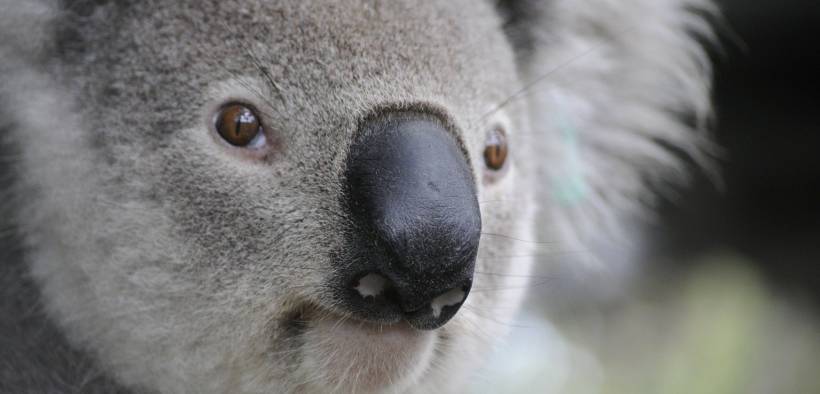Why Koalas Burning Alive Won’t Change a Thing About the Climate Crisis

We need to focus on the cause, not the effect of the climate crisis.
The fires engulfing Australia are merciless in their destruction. 10 million hectares of land burned, 24 lives lost, an estimated billion animals — an unfathomable number — burned alive. This isn’t the norm. We know this because these fires are unprecedented. The climate crisis is responsible for the magnitude of the fires. As the climate crisis accelerates into the 21st century, things are going to get a whole lot worse. But how bad do things have to get before we start taking necessary action?
Forgive my cynicism, but I don’t believe the bushfires in Australia will change anything about how we’re dealing with the climate crisis. We’ve known about the problem for forty years now. If we were going to do something, we would already have done it.
The whole world could be burning, whole species could be going extinct (oh wait, they already are) and we still wouldn’t make the necessary changes needed to deal with the environmental challenges we face.
What’s going on here? Why isn’t the climate crisis being treated like an emergency? I don’t know about you, but I can’t think of anything more important than a threat to the existence of humanity.
The Climate Crisis Isn’t a Problem
One of the major challenges with the climate crisis is the problem isn’t a problem in and of itself. Its an effect of a problem. The cause of the climate crisis is the structure of our economy. It’s the economic doctrine of growth. It’s the desire to make endless profits, and the greed and self-interest this encourages.
The belief systems driving our economy are leading to an undesired outcome, the climate crisis. This begs the question, how can the same set of belief systems creating a problem, now solve the problem they’ve created?
Focusing efforts on reducing the impacts of the climate crisis isn’t going to work. What’s required is a transformation of our economy. If we focus on the cause, we stop the effect.
Unfortunately, we’re trapped in a belief system that doesn’t make a connection between how our economy functions, and the climate crisis.
This connection isn’t made due to a small elite of people who have become fabulously wealthy from our current way of doing things. How would they benefit from changing the structure of our economy? They won’t. It does the exact opposite of benefitting them. Transforming away from our current path puts their position of power at risk.
We’re told change is being made, but these changes are small with limited impact. Not really changing anything, but providing the illusion change is happening.
The elite steers the ship, and they’ve got no interest in veering off course. If they’re doing fine, well, that’s all that matters.
Taking Action
There’s a belief that if we all ‘act now’, we’ll be able to do something about the problem. The responsibility for dealing with the greatest challenge humanity has ever faced falls on us as individuals.
Could you imagine if Japan had dealt with the nuclear emergency in Fukushima in the same way? It’s an absurd thought. Why then is the climate crisis left to individuals to deal with?
Is there a manual being shared out across the globe informing people of the steps you can take to limit your personal impacts? If there is, I’ve never received one.
So what exactly does taking action look like? After all, it’s not about doing anything, it’s about doing the right thing.
Doing the right thing involves working to transform our economy and society to be in harmony with the natural world. Can you see the problem we have? The elite doesn’t want that to happen.
Let’s imagine our economy’s a car. The fuel for the car is our belief systems. It’s clear for all to see the car has some fundamental structural problems.
Different groups (and individuals) are trying to fix parts of the car to reduce its impacts on the world around it. But no one’s allowed to fix the structure of the car. No matter how hard people try, focusing on the parts of the car means the car will always be the same car. And the underlying problem will remain.
We Need a New Car
The car is unfixable because you can’t change the structure of the car. If you did, it would be a new car. And that’s what’s needed, a new car, fuelled by a different set of belief systems.
Trying to fix our economy and society is a waste of time. Action people should be taking is to join a group or movement thinking about a new way of doing things.
What’s needed is a movement grounded by fresh ideas.
When more and more people start to wake up to the reality that focusing on changing the status quo is hopeless, a growing movement will start to think about how we can create a new car.
The climate strikes and Extinction Rebellion represent this growing movement. What they lack is a set of ideas to rally behind. A manifesto for change that can create solidarity amongst people fighting the same cause.
Let the system collapse under the weight of its own arrogance. When it does it will present an opportunity to shape the world in a way where everyone, and everything benefits, even our beautiful blue planet.







